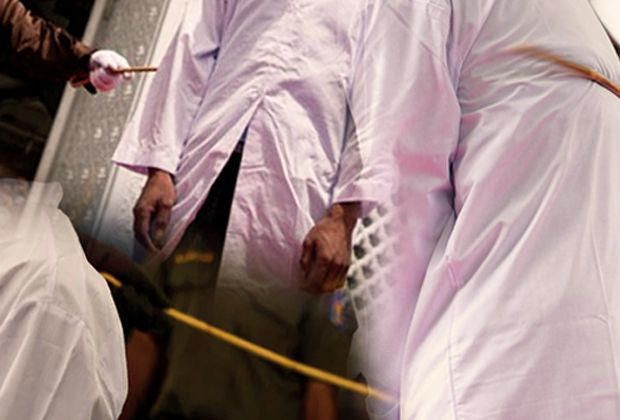Arief Subhan & Ahmad Farouk Musa – 30 December 2024
 We read the multiple reports on the public caning of a man over the offence of being in close proximity with a non-family member of the opposite sex with much regret. Islam that is known as a religion of mercy and compassion is being ridiculed as vicious and wicked.
We read the multiple reports on the public caning of a man over the offence of being in close proximity with a non-family member of the opposite sex with much regret. Islam that is known as a religion of mercy and compassion is being ridiculed as vicious and wicked.
Although we understand that the intention of such a punishment was to demonstrate the Terengganu-state government’s commitment in strengthening the Islamic law, and serves to educate the public in accordance with the command of Allah; we stand with the erudite Mufti of Perlis, Dr Mohd Asri Zainul Abidin, that there is no specific rule in the shari’a law requiring those found to be in close proximity to be publicly caned. Instead, the intent of shari’a law encourages concealing personal shame of individuals.
Does lashing individuals for khalwat (literally seclusion, which has positive connotations in Islamic tradition) or close proximity that may give rise to suspicion of immorality make us defenders of Islam, or does it risk distorting the true spirit of Shari’a law?
Have we forgotten that the Prophet himself was reluctant to impose a hadd (singular of hudud) punishment on an adulterer who confessed his sin?
When Ma’iz al-Aslami confessed his adultery to the Prophet, the Prophet refused to engage the latter in conversation and turned his face away. While we acknowledge that there are variations in the report, what transpired was that the Prophet finally asked, after avoiding Ma’iz for the fourth time, whether Ma’iz was sane. The Prophet then asked Ma’iz if he really knew what fornication meant, or “you only kissed her, or winked at her, or checked her out?” Lastly, the Prophet asked Ma’iz or his people if he had ever been married.
The Prophet’s effort in turning his face away from Ma’iz and shunning him can only be interpreted as an extreme reluctance to apply the hadd punishment. It reflects a clear intent to allow Ma’iz to rethink and to be left alone so that he could repent.
Compare this noble attitude of the Prophet to the harsh Taliban-like approach by PAS. While we hesitate to draw direct comparisons, this is undoubtedly a case of misplaced priorities. Rather than gravitating towards harsher criminal laws, we should address more pressing issues—such as settling unresolved matters of divorce and alimony in our Shari’a courts, creating more job opportunities or providing basic necessities such as clean water and affordable housing.
When many are still living in makeshift tents after floods that have become a yearly event, when clean colourless water is still a main problem, and when our youth face high rates of drug abuse and unemployment; prioritising punitive measures for personal offences is not only in bad taste, but also demonstrates a lack of understanding of Fiqh Awlawiyyat (the jurisprudence of priorities).
 The ultimate aim of Shari’a, like any legal system, is to establish justice and promote human welfare. Shari’a, being non-codified, requires human agency to approximate God’s justice. While humans may err in this process, it is better to err in compassion than brutality under the guise of enforcing God’s Will.
The ultimate aim of Shari’a, like any legal system, is to establish justice and promote human welfare. Shari’a, being non-codified, requires human agency to approximate God’s justice. While humans may err in this process, it is better to err in compassion than brutality under the guise of enforcing God’s Will.
It has to be stressed here that Clinical Psychologists were also of the opinion that such levels of degradation from public caning imprinted psychological scars that can escalate to suicidal or homicidal ideation. Public caning can also result in mental health issue like depression and post-traumatic stress disorder (PTSD).
In fact, public caning for khalwat has no basis in Shari’a. Rejecting public caning for such offences should not be seen as a rejection of Islamic principles.
The Qur’an was very clear about this issue. The Qur’an prohibited the act of spying – as in the case of establishing a khalwat offence – or in the Qur’anic term, tajassus. In Sura al-Hujurat (The Apartments) verse 12, God says:
‘O you who have attained to faith! Avoid most guesswork [about one another] for, behold, some of [such] guesswork is [in itself] a sin; and do not spy upon one another, and neither allow yourselves to speak ill of one another behind your backs.’ [ Al-Qur’an; 49:12]
This is a clear injunction in the Qur’an that prohibits any form of spying to establish personal sins being committed. The religious council in Terengganu, as well as the other states under Perikatan or Pakatan, should heed this Divine command and cease the despicable practice of spying for khalwat, that is clearly forbidden in the Qur’an.
The imposition of harsh laws does not make us more Islamic in the eyes of God. Islam is about justice, mercy and wisdom. We must ask ourselves: Is it not our duty to dispense justice in accordance with the Qur’an?
As Ibn Qaiyyim al-Jauziyya, a renowned student of Ibn Taimiyya, wrote in his book I’lam al-Muwaqi’in:
‘The foundation of Shari’a is wisdom and the safeguarding of people’s interest in this world and in the next. In its entirety, it is justice, mercy and wisdom. Every rule which abandons justice into tyranny, mercy into cruelty, good into evil and wisdom into triviality does not belong to the Shari’a; even though it might have been introduced therein by implication.’
Ibn Qaiyyim also said:
‘The Shari’a is God’s justice and mercy amongst His people. Life, nutrition, medicine, recuperation and virtue are made possible by it. Every good that exists is derived from it, and every deficiency is the result of its loss and dissipation. For the Shari’a, which God entrusted His Prophet to transmit, is the pillar of the world and the key to success and happiness in this world and the next.”
Islam is fundamentally a religion of mercy and compassion. Hence, mercy should be the guiding principle in all applications of the Shari’a.
 Arief Subhan holds a MA Religion in Global Politics from SOAS University of London. He is a Research Fellow at University of Malaya Centre for Civilizational Dialogue (UMCCD).
Arief Subhan holds a MA Religion in Global Politics from SOAS University of London. He is a Research Fellow at University of Malaya Centre for Civilizational Dialogue (UMCCD).
 Dato’ Dr Ahmad Farouk Musa holds a PhD in Surgery from Monash University Australia and a Doctoral candidate in Islamic Studies from University Muhammadiyah Malaysia. He is the founder and director of the Islamic Renaissance Front.
Dato’ Dr Ahmad Farouk Musa holds a PhD in Surgery from Monash University Australia and a Doctoral candidate in Islamic Studies from University Muhammadiyah Malaysia. He is the founder and director of the Islamic Renaissance Front.

